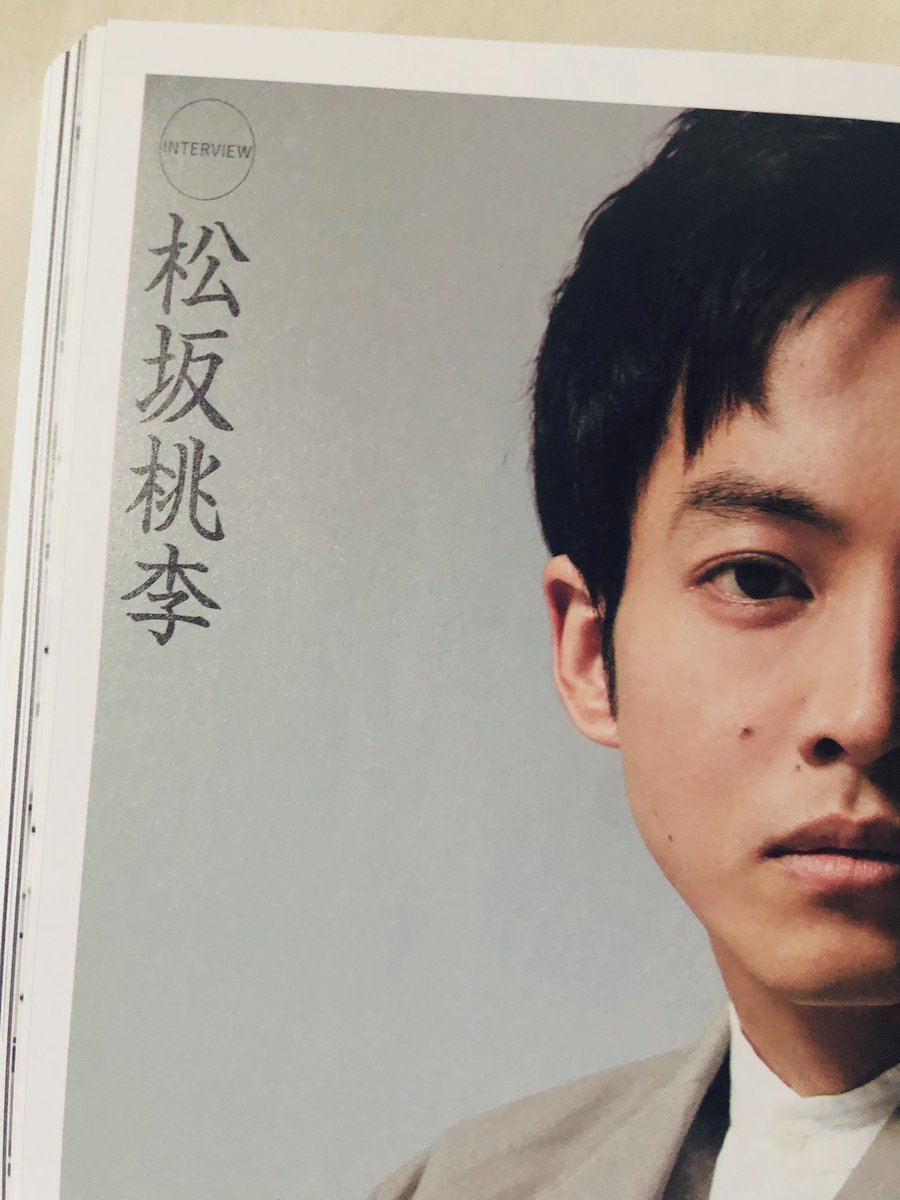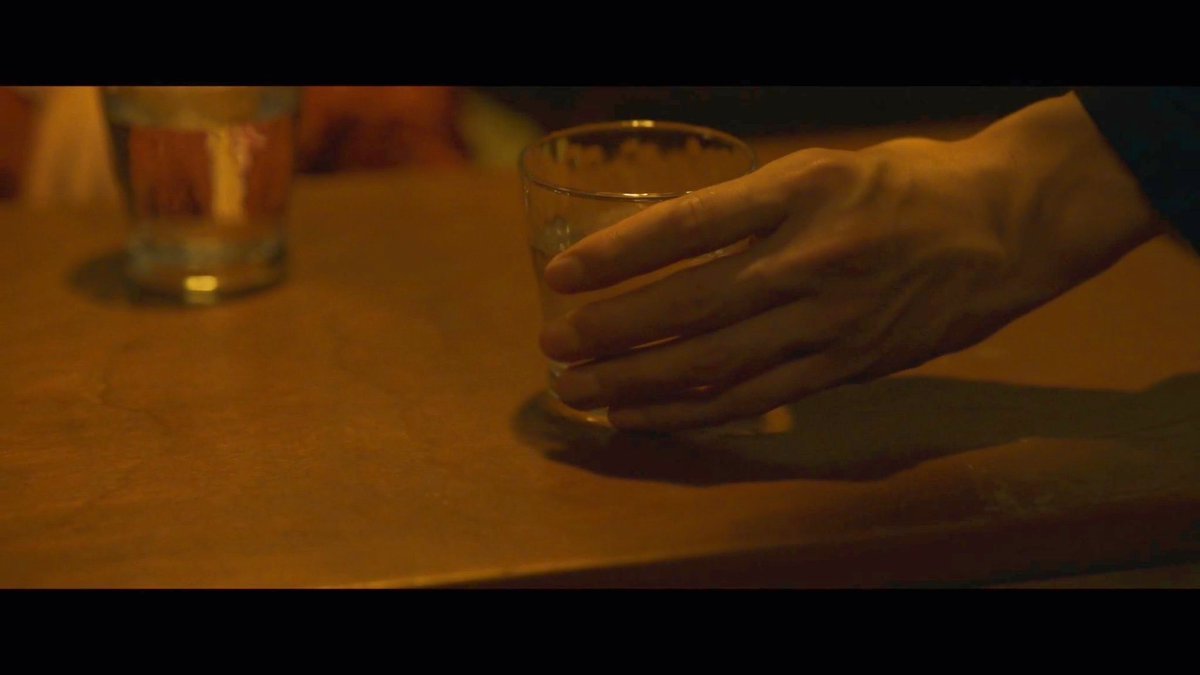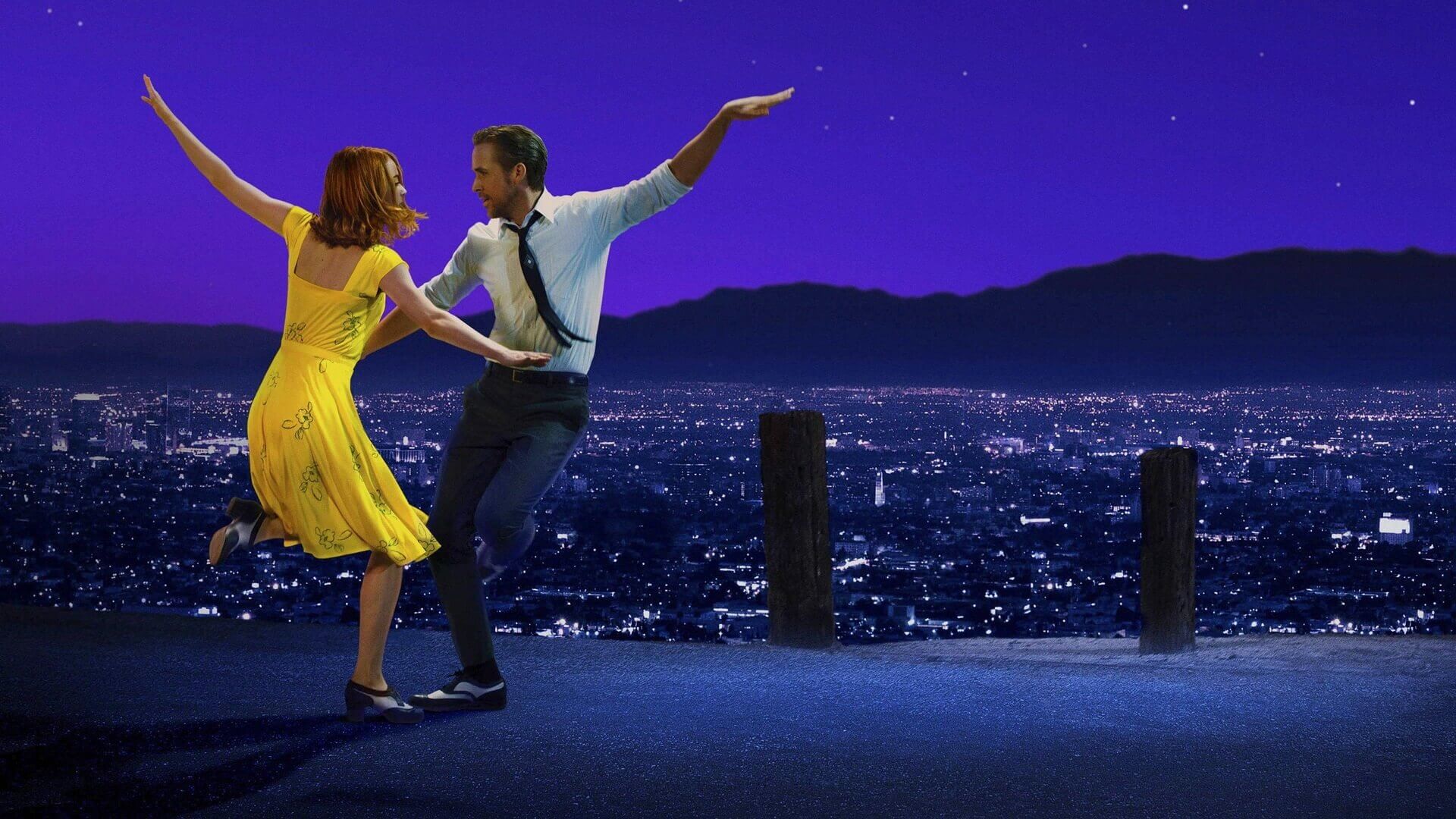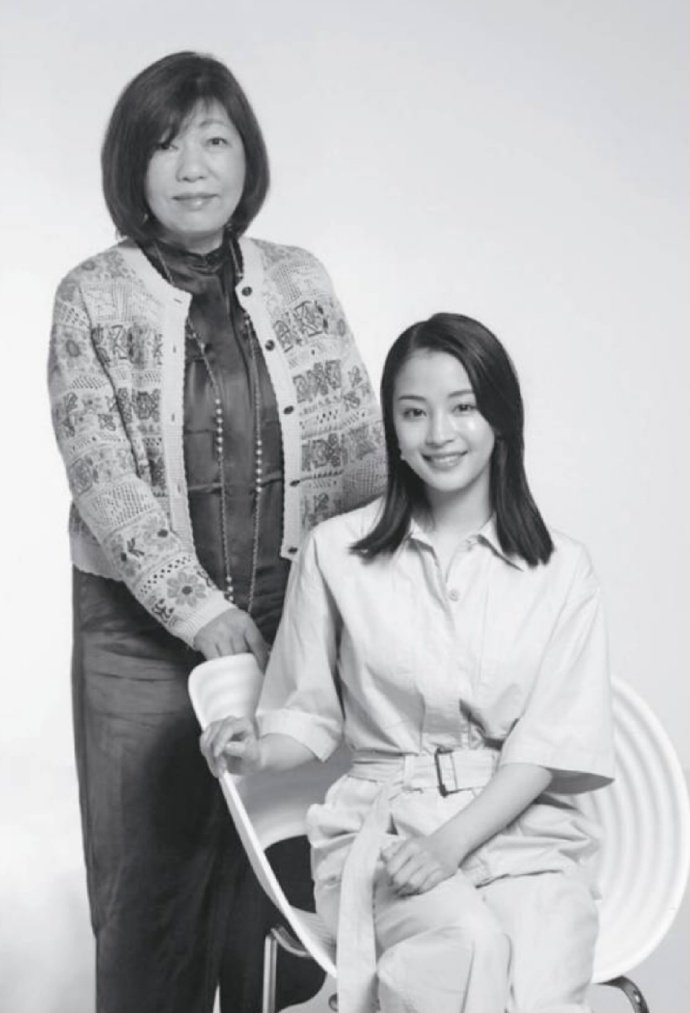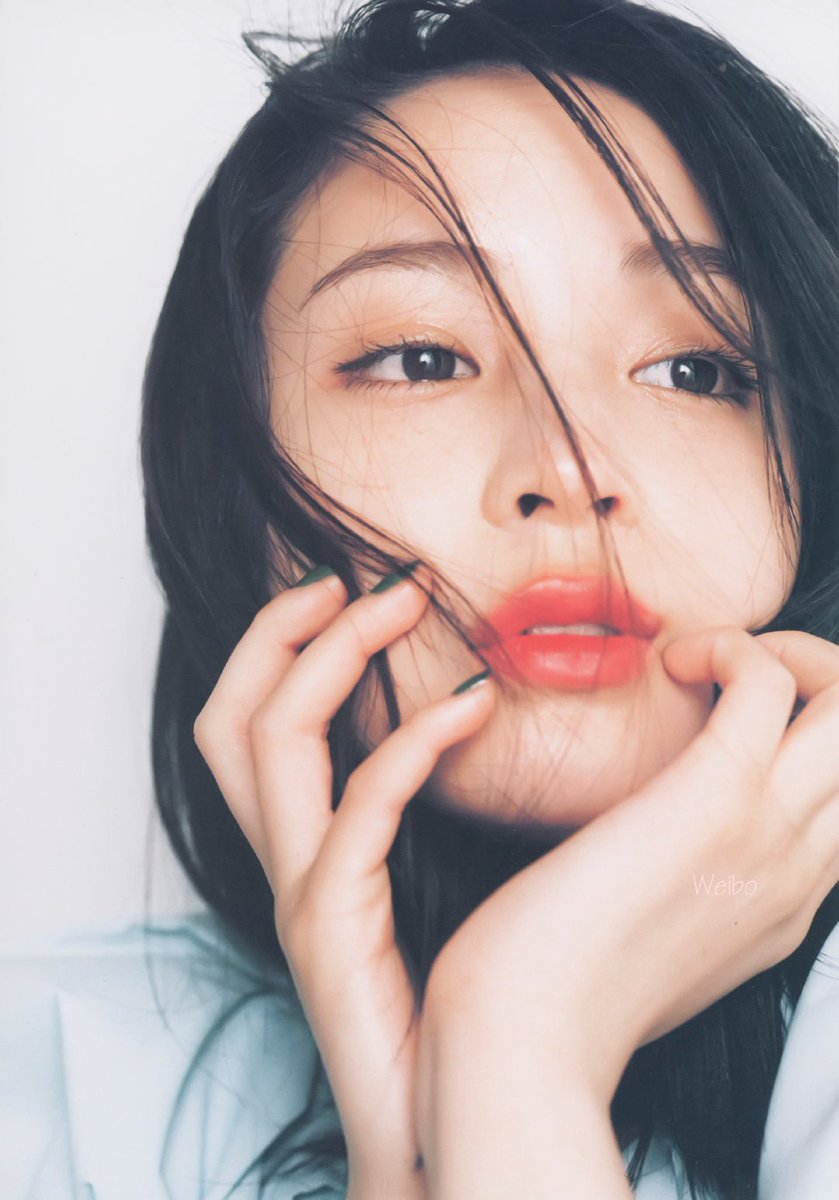A relationship that cannot be named - but a feeling that certainly exists. Yu Nagira's novel "Rurou no Tsuki," which describes the distance between people's souls, won the Booksellers Award in 2020 and captured the hearts of many people.The world of "Rurou no Tsuki" has now been made into a film by director Lee Sang-il, who also directed the movie "VILLIAN". The two stars of the film say that acting is a process of immersing themselves in the story, and that the days of filming were both painful and fulfilling. Suzu Hirose, Tori Matsuzaka, and Yu Nagira share their quiet and sincere thoughts about the film. On the day of the interview, the two actors were wearing masks and were meeting each other through acrylic panels due to Corona, but it was impressive to see Hirose and Matsuzaka leaning forward at the same time so as not to miss any of the author's words.
A world that was difficult to put into words and one that deeply moved me.
Q: You have seen the first preview.
Nagira : It was just like a world so amazing that I can't give any immediate impressions after watching it. Such a wonderful film that I needed time to swallow it, sort it out, and put it together. Thank you very much.
Q: What did you keep in mind when you were expressing the nameless relationship depicted in the novel with a "film"?
Matsuzaka: I had never played a role like Saeki Fumi, a role that is so difficult to put into words, and the first image that came to mind when talking with Lee Sang-il was of him sitting alone, hugging his knees, in the middle of a large, calm lake. I really resonated with that image, and that's how we started to explore the idea.
Hirose: Kanai Sarasa has lived a very normal life, not carrying anything heavy on her back, not doing anything in particular. However, although those who are watching her may somehow perceive something, she herself remains unaware of it. So, to what extent am I showing this to Fumi and Ryo Nakase? Or do they believe in what I am showing them? I was thinking about these things.
Q: Did you ever talk to each other about your roles?
Matsuzaka: We never did.
Hirose: Yes, we never did.
Nagira: Really?
Matsuzaka: But we had a lot of time for communication and rehearsals. So, we were able to establish a distance.
Nagira: Now it became very clear to me. When I was writing the novel, Sarasa and Fumi are two people, but I was conscious of them living as one and the same. So when I saw the film and heard that the two of them did not talk about their roles, it made a lot of sense to me.
Matsuzaka: I'm glad!
Hirose: I am so happy.
Nagira: In the past, I have received comments from people who have read the novel, such as "I don't know how to explain this emotion". I have also seen a preview of the film, and my impression was exactly the same. When I wondered if readers had also received the novel in this way, I realized that there is indeed a connection between the novel and the film. I could only say, "Amazing, amazing," because you were able to express so beautifully what was inexpressible.
Something unintentionally generated by being immersed in the story.
Nagira: I had seen both of you on TV before, but seeing you in person was very different. When I first saw the poster, I thought "Oh, it's Fumi" and "It's Sarasa". I heard that he lost a lot of weight for the role, so I was very surprised to see how amazing actors are and how they can become like this. I was also surprised when I heard that Matsuzaka-san's shout in one scene was actually an ad-lib. It was nothing but Fumi's words. In such a situation, the voice of the role comes out, not his own. I wonder.
Matsuzaka: It was the end of filming, and all the things I had accumulated with Suzu-chan and Dir. Lee had been building up inside me, and it was a moment when they just came pouring out. I felt a sense of relief that I had not heard any comments from Dir. Lee, and I felt like, "Oh, that's good."
Nagira: Dir. Lee accepting Matsuzaka-san's outpouring words was also something that could only be done by understanding Fumi. Is this a common thing with actors? Do you think that the actors are able to come up with words in their performances that are not in the script?
Matsuzaka: It depends on the person.
Hirose: The distance between Fumi and me was different each time, not necessarily in the script. We filmed a series of takes when Fumi interacted with me. For the first time, he pats me on the head. Sometimes he would stroke me three times, sometimes he would just put his hand on my head, and sometimes he would follow the shape of my head.Matsuzaka: It was different every time, right? I apologized in my mind, saying, "Sorry!"
Hirose: But there were times when I thought, "Oh, this is it." Later, Dir. Lee also said, "Maybe that take was the one."
Matsuzaka: And then there was the scene where the two of them were talking for the first time.
Hirose: I felt like my inner self was coming out of me as I played the role.
Nagira: Actually, I was able to observe the filming of that scene. I watched from a distance, and they were really reshooting the scene many times. At that time, there was a sense of distance or emotion that only the two of them could understand.
Hirose: Yes, we certainly were. Dir. Lee was the one who understood this most objectively and accurately assessed the situation, saying, "The two of you are communicating now". However, he kept telling us, "I don't think you two are communicating".
Nagira: You are not communicating.....
Hirose: If there was even a slight mismatch, we would have to reshoot. But when I thought, "Oh, now, everything is there," we got the OK.
Nagira: Wow! It means he could see everything, right?
Q: Was there anything in the direction that you were not satisfied with, or difficult?
Matsuzaka: Not really, but there were things that I knew in my head but could not express in my body. It was like doing homework every day, trying to figure out what to do about it.
Nagira: For example, what kind of things?
Matsuzaka: We spent about two days shooting the scene where I meet Sarasa again. That time, Dir. Lee said "You haven't been through it yet. Homework." I was in distress at the hotel, reading the script and the original story, thinking "What in the world did he give me for homework?"
Hirose: For me, there was a scene that was not in the script but Dir. Lee suddenly told me one day to walk free along the river where Fumi's cafe is located. While I was running and walking around in the middle of the long shot, I saw Matsuzaka-san, and I thought, "Oh, it's Fumi! I jumped up and tried to peek in, and that scene was used in the film.
Matsuzaka: Oh, really, that scene was used in the film.
Hirose: There was a scene at the lake of Fumi and young Sarasa, and I was told that I should be there too. I also wanted to see Sarasa in her childhood, but Dir. Lee told me that I mustn't see the scene. So I was glad to hear how she looked like.
Nagira: What?
Hirose: I don't know!
Nagira: What?
Hirose: But I was curious about it, so I went to Dir. Lee's house and had dinner with him. I told him that I felt a gap between the young Sarasa and the present me, and that I felt uncomfortable. He said "Well, you are right." but that was the end of it.
Matsuzaka: He told her "You're not allowed".
Hirose: Yes! But I was allowed to go there for a bit, just for the scene in the park where we met. I was told to stay out of the view of Tamaki Shiratori (who plays Sarasa as a child).
Matsuzaka: Well... since Tamaki might lose her concentration.
Hirose: I think so.
Nagira: The interaction between the two of you is very heartwarming. Rurou no Tsuki" has a long passage of time in the story, and the timeline goes back and forth. Did you follow the order of the scenes during filming?
Matsuzaka: No, we followed the script, from meeting Sarasa at a young age to their separation.
Hirose: So, it was easy for the emotions to flow.
Matsuzaka: I am grateful that the film was shot with such an emphasis on the flow of time.
Nagira: How long was the shooting period?
Matsuzaka: The shooting itself took about two and a half months, and including rehearsals, it took a little over three months.
Nagira: During that time, did you spend the whole time in the role?
Matsuzaka: Well... when the shooting stopped for two weeks because of corona, I was thinking about Sarasa all the time and making coffee every day.
Nagira: I am curious what kind of time it was.
Matsuzaka: I was thinking that this was the only thing I could do at the moment to focus on the role.
Hirose: I was living a normal life. It was like Sarasa's daily life when she couldn't see Fumi.
Nagira: Did you practice coffee?
Matsuzaka: Yes, I did. I brewed coffee everyday.
Hirose: It was very delicious! I like it black, so I could drink as much as I wanted.
Matsuzaka: I think I probably consumed a lot of caffeine (lol).
Nagira: I think it is amazing that actors practice for their roles, even for things that are not directly related to the role.
Matsuzaka: But I also kept on wondering, "What was Fumi thinking about?" during rehearsals and practice sessions. I was able to look at the time as Fumi, which was not in the script or in the drafts. I enjoyed making coffee so much that I continued to make coffee even after the shooting was over.
Q: Do you feel any joy in having completed the role?
Matsuzaka: Joy? Joy.... I guess. I had the feeling that I had been in a very dense atmosphere, or perhaps a haze, for a long time, and I finally got out of it.
Hirose: It was always difficult for me. No matter what I say or where I go, I only have memories of being in pain.
Nagira: I think both Fumi and Sarasa had really painful roles, and I am sorry for that, but at the same time, I am filled with gratitude.
Q: Once again, how do you feel about today?
Nagira: It was a very important time. I have been a writer for a long time, but this is the first book I have written as a general fiction writer, the first film adaptation as a general fiction writer, and the first time I have had the opportunity to talk with the actors.
Matsuzaka: I am relieved to hear your impression of the preview. I am relieved, or rather, I feel a little calmer now that I was able to ask you about the part that had been bothering me. It was kind of hard for me to watch it objectively at all.
Nagira: Is it always like that?
Matsuzaka: No... I have not experienced such a work so difficult to be objective as this one. Even in the previews, I couldn't help but keep my eyes down, even when I wasn't in the scene myself.
Hirose: I am glad that I had this opportunity to talk to you about it, because I still don't have a good grasp of it.
Q: How do you feel about each of them?
Nagira: I am completely awestruck.
Matsuzaka: Then let me start (laughs). I was intrigued by the gap between someone who speaks so calmly, quietly, and politely, and someone who has created a world that is so formless, or that cannot be easily described. It was like that.
Hirose: Indeed, you are right. When I was acting, I read the book over and over again and found many hints in it. That's why I was really happy when you said at the beginning, "The movie connects with the original".
Nagira: Thank you very much! After talking to the two of you, I realized that the actors were able to express each of the sentences I had written in a series of more than 300 pages with the slightest movement of their fingers or their eyes. When I watched the preview of the film, I could directly feel that "Oh, they exchanged this line, this word, just by looking at each other" because I was the one who created the story. I am so glad that I was able to have the two of you play Sarasa and Fumi. And today, I am happy to be able to express my gratitude to you.
Delivering the film with determination to watch it with preparation.
Q: Finally, please give us a message for the release of the film.
Matsuzaka: As you said, our job is to convey the world expressed in words with our bodies. That's why I hope that those who read the original book and look forward to seeing the film will feel the newly acquired warmth when they actually see the film.
Hirose: I think that some people may find it endearing, while others may find it frightening. I think it is different for everyone, so I am looking forward to it, but I am also afraid of it. We want to deliver the film with determination, and I hope people will watch it with preparation.
Nagira: I was deeply moved by your words "with determination". It is not a film that says much, but it is full of unspoken things that are contained in the atmosphere and signs. Therefore, I think the impression will be completely different depending on the person who sees it, but I hope you will be able to feel all the things expressed by the cast and staff...really, please take in every bit of it.
